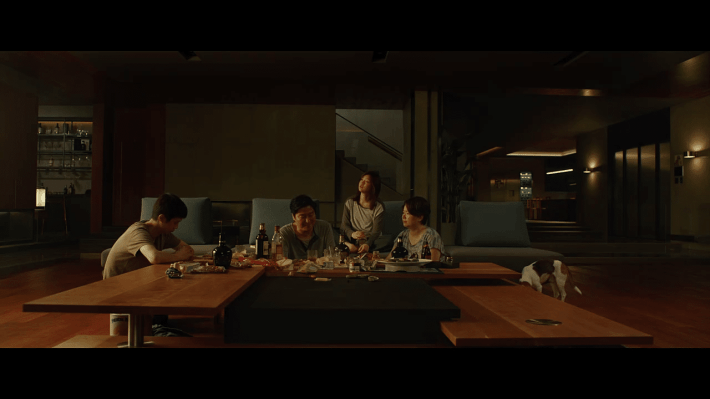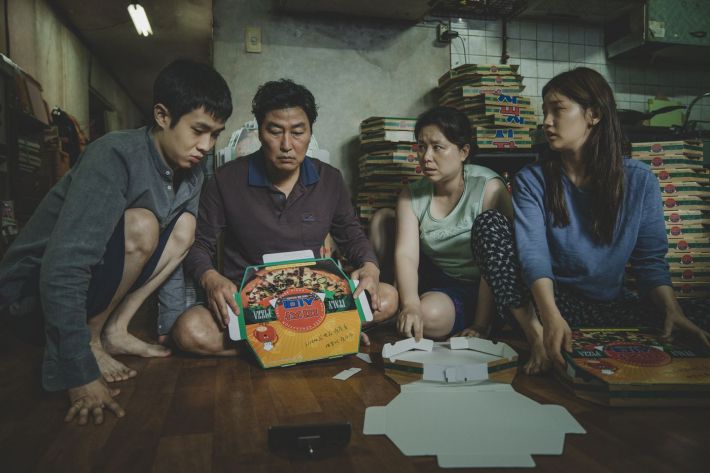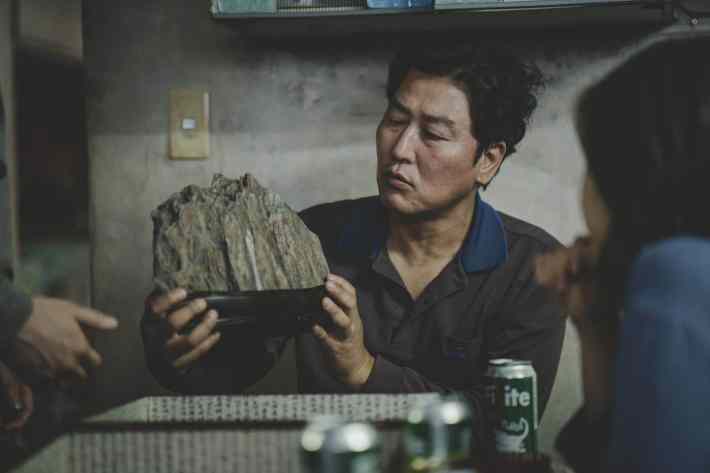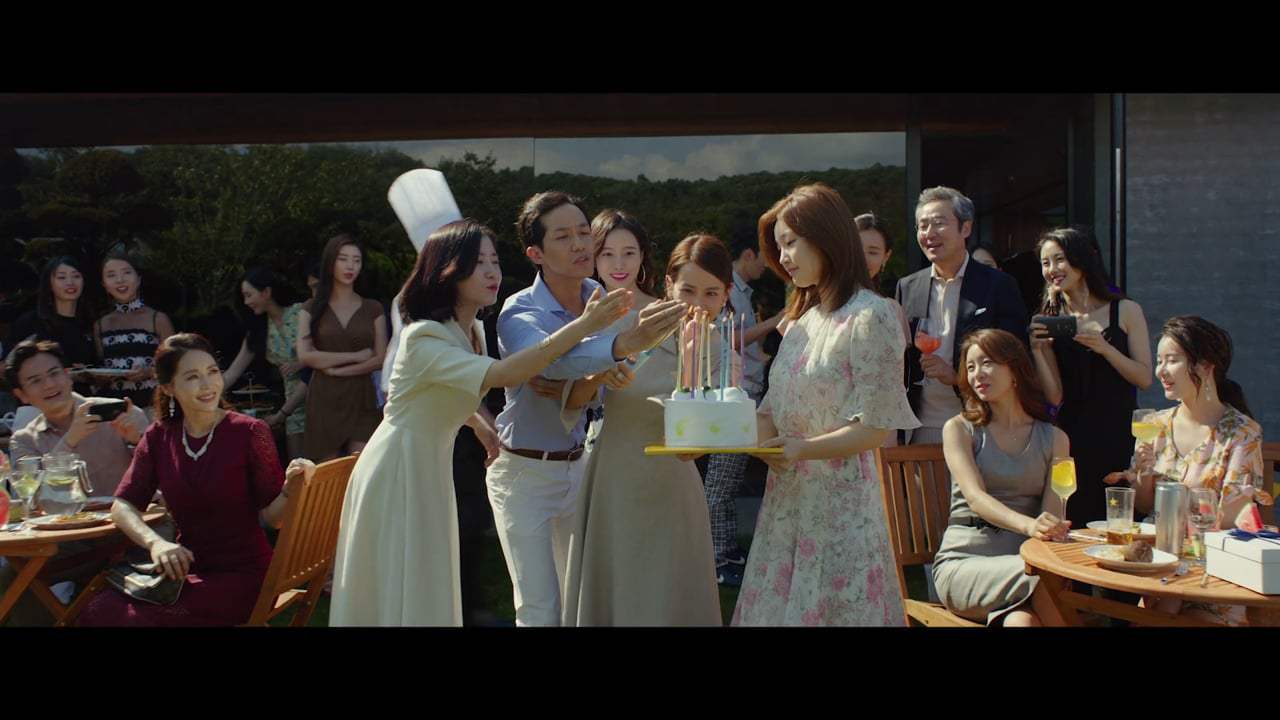[dropcap size=big]T[/dropcap]he Hollywood Foreign Press Association (HFPA), in all its years of reporting for international media outlets on U.S. interests, made headway by nominating Parasite for a Golden Globe, making it the first Korean film ever to have that distinction.
In this current thicket of ceremonies and press tours for the film, director Bong Joon-ho has left Korean-speakers chuckling first while everyone else waited for his punchy, deft translator Sharon Choi to speak. The most recent was at the Golden Globes during his acceptance speech for Best Foreign Film on Sunday evening. I was joyous with yet another chance to relish in his sense of humor before the majority of America did. It does not seem to get old.
For decades, Korean auteurs like Bong have been beasts at portraying themes of poverty, democracy, capitalism; we’ve stayed knowing our strength in storytelling. The HFPA can pat itself on the back for ringing the diversity bell, but this win is not theirs.
It’s a win for all of us who got to hear Korean spoken at length on a major TV network to an audience of millions, a windfall we first received last year when Sandra Oh thanked her mom in Korean after winning the Golden Globe for Best Actress in a Television Drama Series. Bong’s acceptance speech is further meaningful because he was one of the funniest people on stage that night.
We watched him essentially roast Americans on national television for their distaste of subtitles, an ignorance that deprives many of watching incredible films. Thrilled by his statement, I unlearned my own tired notion that in this universe, no Korean would have the floor to make a ritzy room full of Americans laugh on their time and accord.
Still, I am wary of the way that Korean cinema will be heralded by our English-speaking American journalists as if it is some incredible phenomenon that Korean cinema is taking over when we’ve been creating beautiful movies for so long.
I appreciate that my friends have been asking me for recommendations of Korean films (Burning, The Handmaiden, and A Taxi Driver are some of my favorites in recent years). Still, I am wary of the way that Korean cinema will be heralded by our English-speaking American journalists as if it is some incredible phenomenon that Korean cinema is taking over when we’ve been creating beautiful movies for so long.
American media ‘explores’ Korean pop culture
Prior to the buzz around our films, our music has been subject to the sort of cringey exploration that makes us realize that we’re still a novelty in the eyes of white people. It was only mere months ago that the Hollywood Reporter published their profile on Korean pop band BTS where Asian people were compared to automatons and Asian culture was deemed toxic because of the way that the industry handled artists’ fatigue and depression. The ethnocentric pot loves to call the kettle black, depressed, and broken.

When I look at how the white gaze has examined BTS like a crazy thing to be explained, I can’t help being thrilled by the devious ways that Bong has refused to play the game with the American press. He swats away at questions with gentle bemusement as if to tell us to look at it ourselves: How odd is it that he is in America promoting a film about social collapse?
Of course, we love Parasite. A film about class differences, something that’s been ingrained in us since birth? It’s relatable in every way, down to how we celebrate its Golden Globe win in bloated, maximalist Hollywood, where the industry’s vaunted one percent are often at a loss of how to work with labor unions, combat unfair wages, and admit the misrepresentation of race in stories.
We don’t need a translation to understand how we are driving a wedge between groups of varying socioeconomic backgrounds; we just need a really good mirror, like Parasite.
Nowhere is more appropriate to celebrate this anxious film than in Los Angeles, where classism and scams run prevalent throughout the city. How devastating and deliciously ironic it is that the Golden Globes afterparties all throughout Beverly Hills were rampant with film and TV executives and A-listers galavanting and clinking glasses then stumbling back into their celebrity convoys, leaving behind the entrails of their splendor for hotel workers and third-party cleaning services. I have always wondered who is piecing together then hand-washing the red carpets after events.

But Hollywood’s antics are just a spasm in the larger Los Angeles picture. Even after the industry hibernates from months of fanfare, the wealth that flows into our city is burgeoning on the backbreaking work of those who sustain themselves on barely livable wages.
The Korean American Perspective
I used to look forward to L.A. Weekly’s People issues for their coverage of Angelenos who want to invigorate their city. I remember reading about Sara Hernandez in 2015; at the time she was Councilmember José Huizar’s downtown director. Though my copy of this exact L.A. Weekly issue is yellowing and tattered, I still remember her quote about class difference splashing from her page. “Everyone’s a liberal progressive, but no one’s going south of the 10 or east of La Brea,” she said in her interview. “The most depressing day you could have is to teach all day in Watts and then go to a dinner party in Santa Monica.” The switch-up is second-nature to many of us Angelenos, whether it be in our lines of work or the detour we take through Skid Row to get to a new industrial-themed restaurant in the Arts District.

Hernandez’s quote speaks to my M.O. as a writer in Los Angeles, just as how Bong’s offbeat look into classism strikes an uncanny resemblance to our city. The on-and-off switch in our sympathy allows our comfortable residents to be moved by a film like Parasite but then tweet something like this (though in her defense, Chrissy Teigen has been quick to check her privilege). The switch is in our public officials too, who reside in wealthy districts like West Los Angeles or Hancock Park but then step into the areas of our unhoused residents during the holidays for photo opportunities. These are the same people who were scrutinized for wooing a giant tech corporation that also has a history of mistreating their warehouse workers. How are we to keep laughing at and celebrating Parasite on our turf when we can barely get a grip on our problems?
We don’t need a translation to understand how we are driving a wedge between groups of varying socioeconomic backgrounds; we just need a really good mirror, like Parasite. Our responsibility, then, is to hold accountable those who are complicit in perpetuating class conflict in our respective cities.
The recognition that ‘Parasite’ and Bong are receiving feels so much like a personal joy, as someone whose first language was Korean.
I first saw Parasite on October 2nd at Landmark Theatres, which was followed by a Q&A session with Bong. I was delighted by his wryness, translated by Choi for a predominantly English-speaking, West L.A.-based audience. After the screening, one audience member brazenly stood up not to ask a question, but rather to give his long-winded interpretation of the scholar’s rock in the film and then seek Bong’s affirmation of his analysis.
As he waited eagerly, Bong began to speak in Korean about the oddness of the rock as a symbol, mentioning the possibility of it not meaning anything at all, negated by main character Ki-woo when he literally calls the rock metaphorical in the film. I roared at this while the guy waited for Choi’s translation. That’s when I realized how fun it is to be laughing while non-Korean speakers are waiting for their access through Choi’s translations.
That night, I made sure to laugh harder at the rest of Bong’s witty responses while the audience waited breathlessly for the words they know. I don’t take for granted this pleasure of getting something first.






